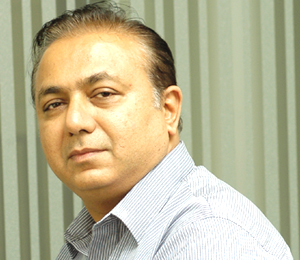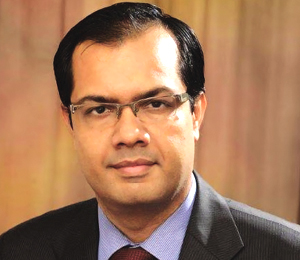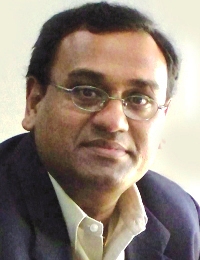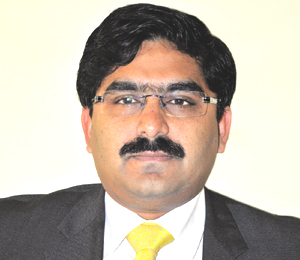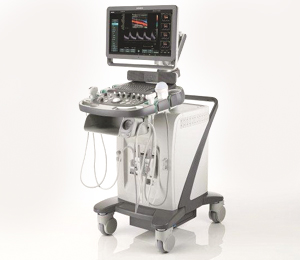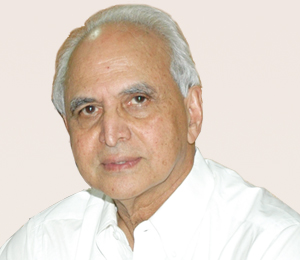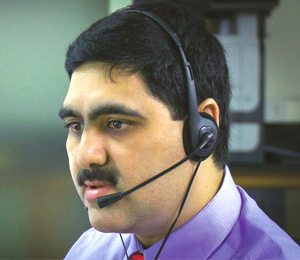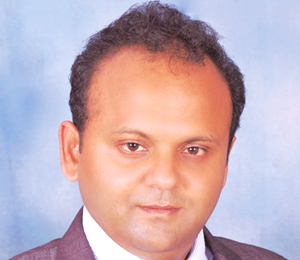
 Many diseases and conditions cannot be curedby an existing medical treatments. When a medical problem cant be cured or healed, then the goal is to manage & to make sure both the patients longevity and quality of life are maximisedby managing the problem
Many diseases and conditions cannot be curedby an existing medical treatments. When a medical problem cant be cured or healed, then the goal is to manage & to make sure both the patients longevity and quality of life are maximisedby managing the problem
By Anil Nayak, Co-founder, Kartavya Healtheon

There are many diseases and health problems that people deal with every day. Dealing with a chronic disease can be much harder. A portion of your time is always consumed in treating the disease or going to the doctor.
The healthcare industry in India is providing organised cure but was lacking organised care. There is a continuous gap in chronic care and lifestyle conditions awareness, screening and behavioural modification. In order to control over the chronic diseases, this concept of remotely managed disease management/patient management is certainly picking up in India. This is because access to information and disease awareness is very low and healthcare cost is rising.
 Many diseases and conditions cannot be cured by existing medical treatments. When a medical problem cant be cured or healed, then the goal is to manage it to make sure both the patients longevity and quality of life are maximised by managing the problem.
Many diseases and conditions cannot be cured by existing medical treatments. When a medical problem cant be cured or healed, then the goal is to manage it to make sure both the patients longevity and quality of life are maximised by managing the problem.

Many of the diseases and conditions that must be managed are consideredchronic, which means they last a long time (that is more than three months), even through the rest of ones life or they recur over and over again throughout ones lifetime. Chronic diseases are generally long duration diseases and generally have slow progression. It is a type of illness that is persistent or long-lasting and also recurrent. It is controllable, but in many cases cant be cured. They include diseases such as HIV, arthritis, diabetes, cancer, cardio-vascular, Hepatitis B and respiratory disease, and are among the most costly and common of all health conditions around the world. Chronic diseasesare a leading cause of increasing healthcare costs. More than half of all population of the world have at least one chronic condition. Disease management is a system of coordinated healthcare interventions and communications for populations with conditions in which patient self-care efforts are significant. It may reduce healthcare costs or improve quality of life for individuals by preventing or minimising the effects of disease
Patient management is an integral component of chronic disease management. People living with chronic diseases are educated to live independently. One important aspect of disease management is its goal of preventing another disease from developing. People with diabetes are at the risk of developing heart, nerve or eye problems, therefore one goal of chronic disease management is preventing the extra problems from occurring.
Chronic disease represents one of the most important challenges facing healthcare systems. Many people with chronic illnesses survive for a considerable period of time, but they need ongoing care. Risk factors such as obesity, smoking and lack of exercise are prent, so without significant and sustained policy intervention chronic disease rates will continue to rise. Chronic disease affects anyone. Around 70 percent of deaths globally are due to chronic diseases and the rates are high in low and middle income countries. The count rate of deaths occurring are too high and the leading cause is that many people are infected with chronic illnesses which cannot be cured easily. Cardiovascular diseases, diabetes, cancers, and chronic respiratory diseases are increasing rapidly across the country. It accounts to 53 percent of all deaths in India. Healthcare industry in the country is providing organised cure but was lacking organised care. There is continuous gap in chronic care and lifestyle conditions awareness, screening and behavioural modification. In order to control over the chronic diseases, disease management brought this concept of remote controlled disease management/patient management, which is certainly picking up in India. But having a close look, many people are not aware about the concept. This is because access to information and disease awareness is very low and healthcare cost rising day by day. Disease management programmes organise care in multidisciplinary programmes with many components, using a proactive approach that focuses on the whole course of a chronic disease includes the coordination of healthcare, pharmaceutical or social interventions designed to improve outcomes for people and cost effectiveness. It recognises that a systematic approach is an optimal and cost-effective way of providing.
As healthcare costs have been rising for years and as per the expert predictions, the trend will continue, disease management tries to reduce healthcare costs and improve quality of life. The individuals benefit from it as it prevents or minimises the effects of a disease, usually a chronic condition, through integrative care. Disease management programmes are instrumental in assisting patients to handle their disease effectively and lead a normal life as far as possible.
The patients, after enrolment, are offered information and education about their disease and the means to handle them through booklets/literature, regular counselling, health tips, diet books and recipes, as well as medication reminders at regular in tervals with a free SMS alert service or a pill reminder machine – a kind of alarm clock that can be set to remind the patients when it is time to take their medicines. Disease advisors are run by retired nurses, doctors while psychologists also assist the patients. They visit homes of the patients to check their progress and advise them on the way forward. This, in turn, reassures the patients that they are in safe hands and would receive the required care as and when necessary.
Thus, disease management system has several advantages cutting hospital time for patients, reducing the bed patient imbalance, educating and helping the patients handle their disease effectively, assisting the doctors post diagnosis to name a few.
Disease management programmes are instrumental in assisting patients to handle their disease effectively and lead a normal life as far as possible
Disease management programmes can benefit the patient, employer and health insurance carrier. The goal for disease management is to make the patient understand his condition and ensuring that he regularly visits his primary-care physician. Care premiums, which ultimately pass through to the patient/employee as well. After identifying a patient with a chronic condition, a clinical care manager attempts to speak with the patient to assess her/her condition. This assessment traditionally occurs by telephone but may occur face-to-face. The assessment is a series of questions about the patients current condition; lifestyle and behavioural actions to determine his/her risk level. Based on the assessment answers, the care manager develops,
in conjunction with the patient, a care plan for the patient to follow. The disease management care manager and patient will have ongoing meetings with a frequency determined by risk level the more high-risk the patient is, the more frequent will be number of discussions be. At these sessions, the goal is to educate the patient and improve his health and lifestyle. Non adherence to medication is a major impact for poor therapy outcomes and treatment for chronic disease.
Be a part of Elets Collaborative Initiatives. Join Us for Upcoming Events and explore business opportunities. Like us on Facebook , connect with us on LinkedIn and follow us on Twitter , Instagram.


